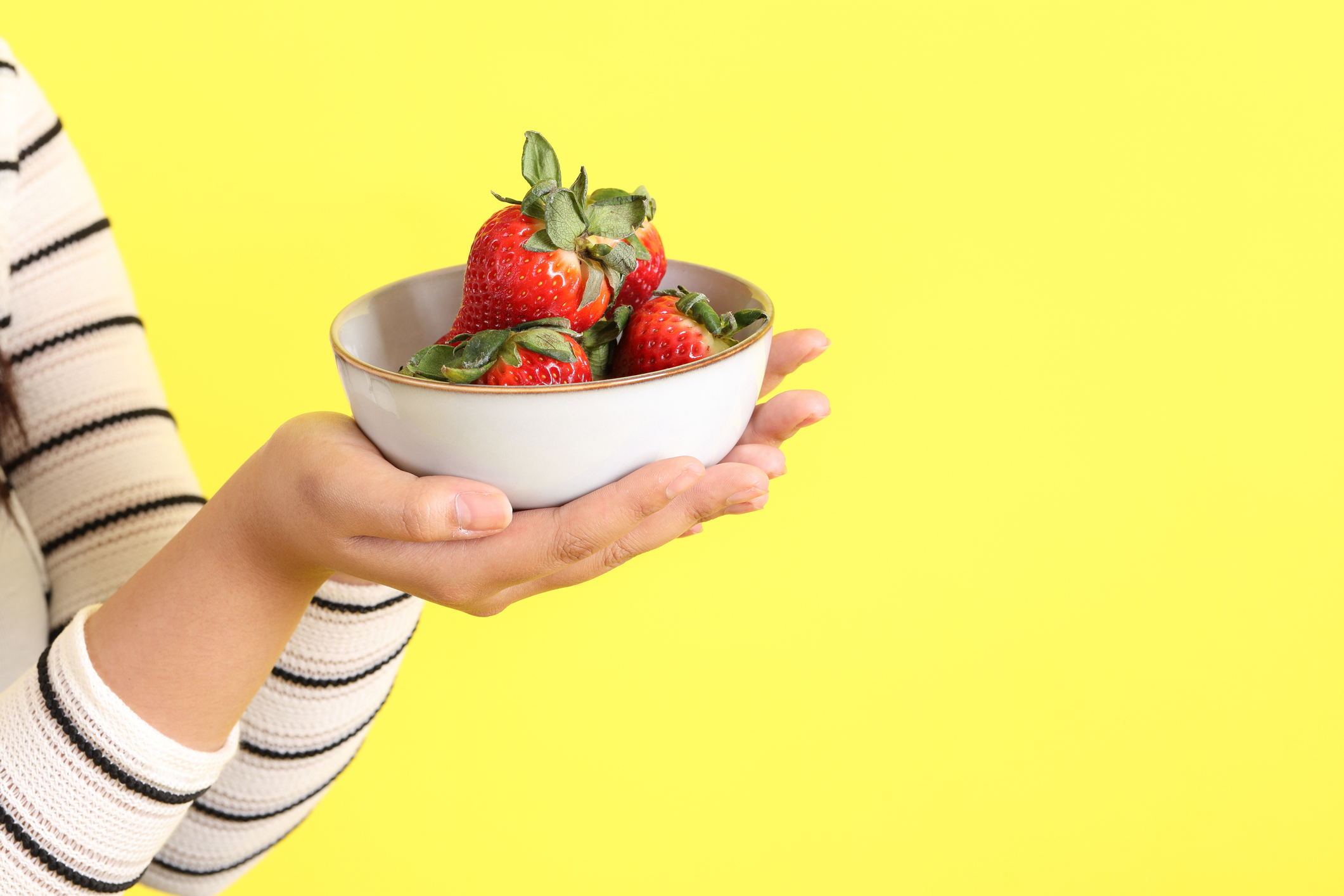Get Easy Health Digest™ in your inbox and don’t miss a thing when you subscribe today. Plus, get the free bonus report, Mother Nature’s Tips, Tricks and Remedies for Cholesterol, Blood Pressure & Blood Sugar as my way of saying welcome to the community!
10 fruits to eat when watching your carbs

One of the biggest reasons I’ve never embraced a low-carb lifestyle is my love of fruit.
Most low-carb diets recommend limiting carbs to less than 100 grams per day. A ketogenic diet restricts carbs even more, at 20-50 grams per day, depending on how strict you want to be.
With these limitations, I always assumed that fruit’s natural sugar content made it an automatic no-go on a low-carb diet. Turns out I was wrong….
It’s true that fruit naturally contains carbohydrates. However, some fruits actually fall low enough on the carb scale to serve as a nutritious addition to a low-carb diet.
Here are 10 fruits that clock in at or below 15 grams of carbs per serving…
Strawberries
If you’re looking to get your vitamin C from fruit, skip the citrus and go for strawberries. Eight medium strawberries, or one cup of slices, have just over 7 grams of carbohydrates and almost as much vitamin C as an orange.
They’re also packed with phytonutrients, which help fend off cancer and inflammation, protect your heart and balance your blood sugar. Just remember to buy only organic strawberries, as most commercially grown strawberries are rife with pesticides and other chemicals.
Watermelon
It turns out that fruits high in water or fiber have fewer carbs than other fruits. That’s why watermelon, which is 92% water, is one of the lowest-carb fruits, with 7.5 grams of carbs in every 100-gram serving (about one cup). Watermelon also contains plenty of vitamins A and C for a nice antioxidant boost, and studies show it can help protect your cardiometabolic health.
Plums
Plums are a great low-carb snack, with one medium plum (roughly 100 grams) containing only 7.6 grams of carbs. That same plum contains 100 milligrams of potassium to help manage blood pressure and ward against strokes. However, be cautious of dried plums or prunes, which can contain a substantial 64 grams of carbs per 100-gram serving.
Cantaloupe
This mainstay of fruit salads is a great low-carb fruit snack, with every 100-gram serving (roughly one cup or one large wedge) costing only about 8 grams of carbs. Cantaloupe is also high in vitamins A and C and folate.
Peaches
This sweet summer treat is also a low-carb one. One medium peach (roughly 100 grams) contains 8 grams of carbs, a gram of protein, a half-gram of fiber and 15% of the recommended daily intake of vitamin C.
Avocado
You may think of avocado as a vegetable, but it’s actually classified as a berry. Every 100-gram serving of avocado (a little less than a cup of cubes or slices) contains 8.5 grams of carbs and about 2 grams of protein. Avocados are also high in fiber and monounsaturated fats (the “good” kind), and they outweigh the banana in terms of potassium content.
Honeydew
Every 100 grams of this sweet melon contains 9 grams of carbs—that’s about one cup or a small wedge and a half. Honeydew also comes in strong on the nutrient front, with tons of copper, potassium and vitamin C.
Blackberries
One cup of blackberries has less than 10 grams of carbs, a good amount of fiber and plenty of disease-fighting antioxidants. Their fiber content, as well as lower fructose level, means blackberries are less likely to cause gas and digestive problems.
Pineapple
A half-cup of pineapple (roughly 100 grams) has 11 grams of carbs. Eating pineapple is one of the best ways to get manganese, an essential mineral necessary for the nervous system, hormones, blood sugar and calcium absorption. Pineapple also naturally contains bromelain, a mix of enzymes that digest protein.
Raspberries
As mentioned earlier, high-fiber fruits have low carb counts. And raspberries, at 8 grams of fiber per cup, fit the bill nicely. They also contain a high amount of vitamin C. One cup of raspberries equals one serving of carbs (roughly 15 grams). You’ll want to eat fresh raspberries right away since they spoil within a day or two of purchase.
Smart fruit consumption
It’s important to note that these carb counts and benefits all apply to plain fresh or frozen fruits that are unsweetened.
If you want to add canned fruit to the mix, try to find versions that are packed in 100% water — not sugary syrup. It’s best to drain and rinse the excess juice off the canned fruit before eating it.
All carbs are not created equal, and giving them up completely could come back to haunt you. Carbs contribute to healthy aging and better sleep, so make these and other healthy carbs part of a well-rounded diet.
Editor’s note: Are you feeling unusually tired? You may think this is normal aging, but the problem could be your master hormone. When it’s not working, your risk of age-related diseases skyrockets. To reset what many call “the trigger for all disease” and live better, longer, click here to discover The Insulin Factor: How to Repair Your Body’s Master Controller and Conquer Chronic Disease!
Sources:
Low-Carb Fruits — WebMD
What to Eat on a Low Carb Diet Plan — Obesity Medicine Association














